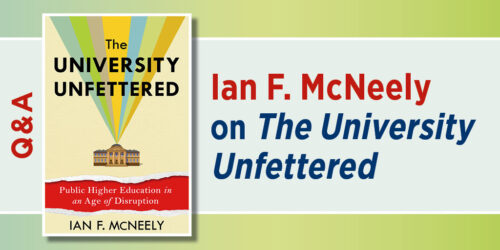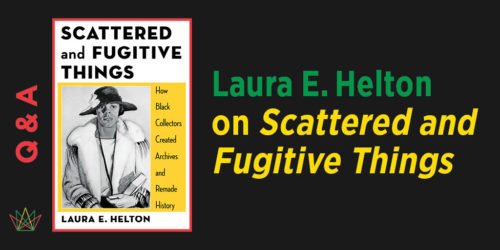Interview with David Celani, author of Leaving Home: The Art of Separating From Your Difficult Family
The following is a Q&A with David Celani, author of Leaving Home: The Art of Separating From Your Difficult Family. (You can download this book, rent it, or purchase individual chapters via Columbia University Press Online Access)
Question: Your book is now available in paperback. What kind of feedback have you received since its initial publication in 2004?
David Celani: I think the book has sold well because it appeals to three different constituencies. The first group of readers who have shown interest in this book are parents or siblings of adult children who remain living at home well into middle age and who are not succeeding in the world. These relatives are concerned for the welfare of the individual and want to find out how to help them. The second group are mental health professionals who want a general introduction to the way that I have used Object Relations Theory (the psychoanalytic theory that my treatment is based upon) in the treatment of dependent, developmentally delayed patients, while the third—and perhaps largest group—are patients in therapy who have read the book upon the recommendation of their therapists. Many patients also buy the book as a result of a number of very positive patient reviews they read on Amazon.com. I frequently get calls from patients who have read Leaving Home and who are interested in other books that I have written.
In general, readers report that Leaving Home is understandable and approachable, due to the numerous examples that I use to illustrate the many faces of excessive dependency on family members. I aimed to write a book that would both entertain and inform the reader about the sources of adult developmental dysfunction, using patients from my twenty-six years of clinical practice as a psychologist. Every developmental principle that is described is then illustrated by an example that reads like a description of someone you know.
Q: You just mentioned “Excessive Dependency” on family members. Can you explain why adults remain excessively dependent on their parents?
D.C.: The entire focus of Leaving Home is on the developmental histories of individuals who end up slavishly attached to the very parents who failed them in childhood. The fundamental but extremely counter-intuitive premise of Object Relations Theory is that unmet childhood needs do not go away, but rather accumulate over time, and stop the ongoing development of the child’s (or young adult’s) personality. As time passes, the individual’s body “grows up” but his personality remains fixated at an earlier stage of development. Rather than dating or going out with friends, the young person may isolate himself from others and entertain himself with video games and fantasies of heroism, while his high-school friends, who have had relatively normal developmental histories, are sampling more adult ways of behaving. “Normal” adolescent behaviors are too risky for a person who has a 16 year old body and the personality development and confidence of an eight year old child. As time passes, the individual falls further and further behind his peers. The metaphor that I often use is that healthy development, which results from a supportive family atmosphere allowing the child’s personality to mature, is akin to getting 20 gallons of high test gasoline in your fuel tank, and once the tank is filled it never runs out. Parents who inadvertently stunt their child’s development through indifference, excessive criticism, humiliation, mockery, or episodes of physical abuse, stall their child’s developmental progress. The child raised in this type of family ends up with an empty emotional fuel tank, remaining close to his parents because the outside world appears to be too daunting to enter, and because he lives in the endless hope of someday receiving the emotional support that will allow him to mature.
Q: You mentioned Object Relations Theory—what in the world is it?
D.C.: Object Relations Theory is one of the five or six competing psychoanalytic theories. It assumes that the basic motivation of the child is to remain securely attached to the nurturing parent(s). Events that disrupt the attachment between child and parent are experienced as threatening to the child’s physical and psychological life. A perfect example is the toddler who is forcefully slapped by his mother and replies “Mommy, somebody hit me.” The child cannot consciously accept the fact that it was the parent who slapped him. That information is repressed in the child’s unconscious. The child cannot accept this reality because he would have to go back to the same abusing parent for nurturing and support. The human unconscious is “accrued” or “built” as a consequence of these types of actual life events that are too important to forget but simultaneously too distressing to consciously remember. These past events are isolated in the unconscious and often reveal themselves later in life as unrealistic hopes for love from parents (or adult partners) who have been completely indifferent or sudden bursts of rage at the slightest affront.
Q: How is Leaving Home different from other self-help books on the market?
D.C.: Adults who find themselves living with their parents and who have difficulty in leaving their family of origin represent one of the largest groups of mental health patients in the country. Speaking personally, my extended family is no exception in that I have two relatives who are still living with their elderly parents despite adequate educations. It’s a timeless phenomenon, which is highlighted by the current crop of reality shows many of which feature families who work together yet the adults demean, insult, and otherwise abuse their adult children. This human dilemma is the result of early relationship experiences that “imprint” the child on parents who refuse to give him the nurturance that they required to become mature adults while simultaneously creating the expectation that all human relationships will take the same form. The difference between my book and almost all the competition is the fact that is based on a powerful psychoanalytic developmental model that understands adult relationship issues as a continuation of childhood relationship patterns that convinced the child that he should remain loyal to his parents in order to maximize the possibility that they will someday offer him the nurturance and support that he needs to continue with his development.






2 Responses